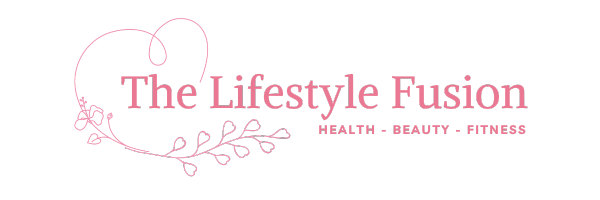It is crucial to focus on maintaining proper moisture levels in your hair. This can be achieved through the use of moisturizing shampoos and conditioners, deep conditioning treatments, and leave-in products. To combat frizz and roughness, this article helps to avoid such hair fatigue and will present with best tips for frizzy hair.
Frizzy and rough hair typically results from a lack of moisture and a disrupted hair shell. Hair strands consist of a protective outer layer called the cuticle, which can become raised and uneven when it loses moisture or sustains damage. This raised cuticle allows moisture from the environment to be absorbed, causing the hair to swell and appear frizzy. Dryness is a common cause of frizz, and it can be exacerbated by factors such as exposure to harsh weather conditions, heat styling, and the use of products containing alcohol or sulfates. Damage to the hair, including split ends and breakage, can also lead to a rough and frizzy texture.
Additionally, genetic factors, nutrition, and the use of chemical treatments can play a role in determining the natural texture and health of your hair. Protecting your hair from excessive heat and environmental factors, as well as using gentle hair care practices, can help maintain the integrity of the hair cuticle and reduce frizz. Regular trims to remove split ends and a balanced diet rich in essential nutrients can also contribute to healthier, smoother hair.
15 Best Tips For Frizzy Hair
Frizzy hair can be a common issue in the winter due to the low humidity, cold temperatures, and the use of indoor heating systems, which can dry out your hair. To avoid such problem, consider these best tips for frizzy hair in detail:
1. Balanced Diet and Enough Water Intake

Hair is made of Protein, so be ensure that you are taking enough protein from your daily diet routine. Proper hydration and a diet rich in essential fatty acids, vitamins, and minerals can contribute to overall hair health and reduce frizz. Because if you not consuming enough amount of water, protein, and other essential vitamins, your hair becomes dry, rough, and weak. The deficient protein can cause hair loss and even hair growth.
2. Reduce Shampoo Frequency
Too frequent use of shampoo can cause actual damage to hair and make it more rough and frizzy. Be limited with the hair wash each week, as excessive washing can strip your hair of natural oils. Try co-washing (using conditioner instead of shampoo or anti frizz conditioner) every other wash to maintain moisture.
3. Abstain Hot Showers
Hot water can strip your hair of its natural oils. Try to use lukewarm water for hair washing to maintain moisture. It makes your scalp dry which leads to dandruff, itchiness, and irritation. Also, it makes your hair roots weak, leading to excessive hair loss and fizziness. It damages the surface of your hair which results in breakage and fragileness.
4. Avoid Indoor Heating

If you’re in environments with central heating, use a humidifier and consider covering your hair with a silk scarf or cap to prevent it from drying out. Because Heat is one of the major causes of split ends and breakage, heat tools may be a great short-term solution to managing your hair roughness, but can leave many severe long-term damaging effects.
5. Use of Humidifier
In your home, use a humidifier to add moisture to the air. This will help prevent the air from being too dry, which can contribute to frizz. This extra layer of protection is vital for managing the overall health of your hair. A humidifier can also boost the effectiveness of your hair treatments and reduce the damaging effects of the environment.
6. Include Anti-Frizz Products
Use anti-frizz serums, anti-frizz oils, and anti frizz conditioner and shampoo, which are specifically made to overcome frizz. These products can help smooth the hair cuticle, add shine to your hair, and prevent ruining humidity. The anti-frizz hair products are designed to coat the hair with silicones to smooth and detangle frizz.
7. Moisturizing Shampoo and Conditioner

Starting the use of a hydrating and sulfate-free shampoo and conditioner to prevent your hair is very important from becoming overly dry and rough. The moisturizing anti frizz conditioner and shampoo have been developed for anyone who has all these frizz problems. It hydrates your hair, secures it from environmental damage, and restores moisture with some natural oil to make your hair functional and growing.
8. Shield Your Hair
Wear a hat or use a scarf to shield your hair from cold wind, rain, and snow, as these can all contribute to frizz. Wrapping your hair with a silk scarf or tucking your hair into your shirt improves tangling and frizz. The silk scarves are not only great at avoiding frizz, they are a stylish accessory as well. A warm, not hot, shower will also help to prevent dandruff and dry scalp.
9. Hydrating Creams
After washing your hair, apply a leave-in hydrated cream to keep your hair nourished throughout the day. When you apply a hydrating moisturizer to your hair ends, you will find noticeable and immediate differences in texture and appearance. Such leave-in creams transform frizzy strands into soft, smooth curls, so they become easier to manage and style.
10. Cleanse with Cool Water

After conditioning, cleanse your hair with cool water. Cold water will cause the hair cuticle to lay flat, this way your hair becomes more shiny and thicker. This also helps to seal the hair cuticle, making it avoid unruly hair. So always use cool or normal water temperature for rinsing to safeguard your hairs from roughness and breakages.
11. Use Satin or Silk Pillowcases
These materials create less friction than cotton, which can help reduce hair frizz and breakage while you sleep. Silk’s natural characteristics help you to maintain your hair’s natural oils, preventing dryness and breakage. Many hair care professionals recommend that always use satin or silk pillowcases because our hair won’t snag and break and the material allows our hair to slide along softly while moving on the pillow.
12. Abstain from Over-brushing
Don’t over-brush your hair in a day. Brush your hair gently and avoid excessive brushing, as it can disturb the natural pattern of your hair and lead to frizz. Excessive brushing or combing damages your scalp, which can cause hair loss, breakage, and even harm the hair follicles. Therefore, it is recommended that brushing only once in the morning and once at night. Unless you have extremely entangled hair, there’s no need to brush your hair more often.
13. Deep Conditioning

Include an anti frizz conditioner for deep conditioning treatments into your hair care routine at least once a week. These treatments will provide extra moisture and help your hair to fight dryness. Deep conditioning your hair helps to smooth the hair texture and gain back the natural shine of your hair. With time, your hair can accumulate growth from different products and also from the weather.
14. Minimize Heat Styling
Minimize the use of heat-styling tools like flat irons and curling irons. Heat can further dry out your hair, making it prone to frizz. If you need to use them, always apply a heat protectant spray. An ideal scenario though is to minimize heat styling tools as much as possible, especially when you’ve already damaged your hair. Cease applying heat tools, your hair will be more likely to grow healthier every day for sure.
15. Trim Regularly

Keep your hair ends healthy by getting regular trims the hair can contribute to frizz. Trimming your hair regularly has many advantages like reducing split ends, promoting healthy hair, reducing unruly hair, and fastening hair growth. There is no hard rule as to how often you should trim your hair, there is a common time frame that hairstylists and hair care professionals recommend. The general guidelines for cutting hair suggest that you should get a cut after six to eight weeks. But still, this timeframe isn’t the same for everyone.
Hence, it is very important to keep in mind that it might take some time to notice a significant improvement, so be patient, and include the above best tips for frizzy hair with a consistent approach in your regular hair care routine. Everyone’s hair is different, so you may need to experiment with various products and routines to find what works best for you during the winter months. Incorporating these strategies into your daily hair care routine will not only help you reduce frizz but also leave you with smooth, manageable locks that radiate shine and the overall health of your hair. Grab these tips, and you will be well on your way to achieving the sleek, frizz-free hair that you have always dreamed of. Say goodbye to unruly hair and hello to the confidence that comes with effortlessly beautiful and silky hair.






